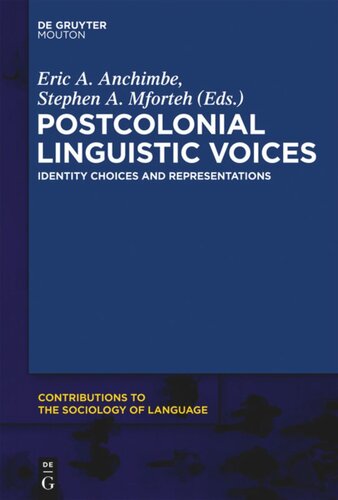

Most ebook files are in PDF format, so you can easily read them using various software such as Foxit Reader or directly on the Google Chrome browser.
Some ebook files are released by publishers in other formats such as .awz, .mobi, .epub, .fb2, etc. You may need to install specific software to read these formats on mobile/PC, such as Calibre.
Please read the tutorial at this link: https://ebookbell.com/faq
We offer FREE conversion to the popular formats you request; however, this may take some time. Therefore, right after payment, please email us, and we will try to provide the service as quickly as possible.
For some exceptional file formats or broken links (if any), please refrain from opening any disputes. Instead, email us first, and we will try to assist within a maximum of 6 hours.
EbookBell Team

4.3
38 reviewsThis volume investigates sociolinguistic discourses, identity choices and their representations in postcolonial national and social life, and traces them to the impact of colonial contact. The chapters stitch together current voices and identities emerging within both ex-colonized and ex-colonizer communities as each copes with the social, lingual, cultural, and religious mixes triggered by colonialism. These mixes, reflected in the five thematic parts of the book - 'postcolonial identities', 'nationhood discourses', 'translating the postcolonial', 'living the postcolonial', and 'colonizing the colonizer' - call for deeper investigations of postcolonial communities using emic approaches.